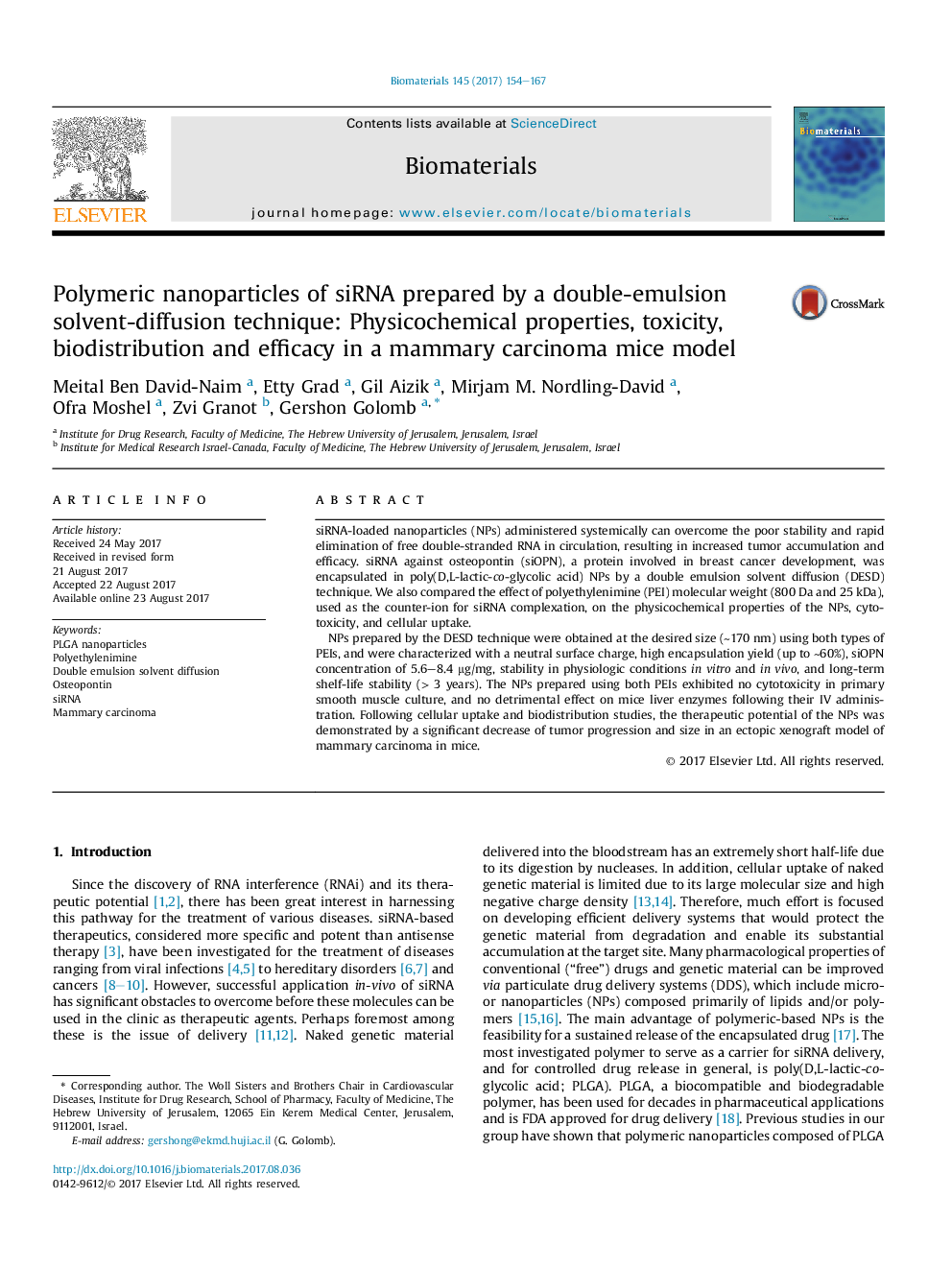| Article ID | Journal | Published Year | Pages | File Type |
|---|---|---|---|---|
| 6450531 | Biomaterials | 2017 | 14 Pages |
siRNA-loaded nanoparticles (NPs) administered systemically can overcome the poor stability and rapid elimination of free double-stranded RNA in circulation, resulting in increased tumor accumulation and efficacy. siRNA against osteopontin (siOPN), a protein involved in breast cancer development, was encapsulated in poly(D,L-lactic-co-glycolic acid) NPs by a double emulsion solvent diffusion (DESD) technique. We also compared the effect of polyethylenimine (PEI) molecular weight (800 Da and 25 kDa), used as the counter-ion for siRNA complexation, on the physicochemical properties of the NPs, cytotoxicity, and cellular uptake.NPs prepared by the DESD technique were obtained at the desired size (â¼170 nm) using both types of PEIs, and were characterized with a neutral surface charge, high encapsulation yield (up to â¼60%), siOPN concentration of 5.6-8.4 μg/mg, stability in physiologic conditions in vitro and in vivo, and long-term shelf-life stability (> 3 years). The NPs prepared using both PEIs exhibited no cytotoxicity in primary smooth muscle culture, and no detrimental effect on mice liver enzymes following their IV administration. Following cellular uptake and biodistribution studies, the therapeutic potential of the NPs was demonstrated by a significant decrease of tumor progression and size in an ectopic xenograft model of mammary carcinoma in mice.
